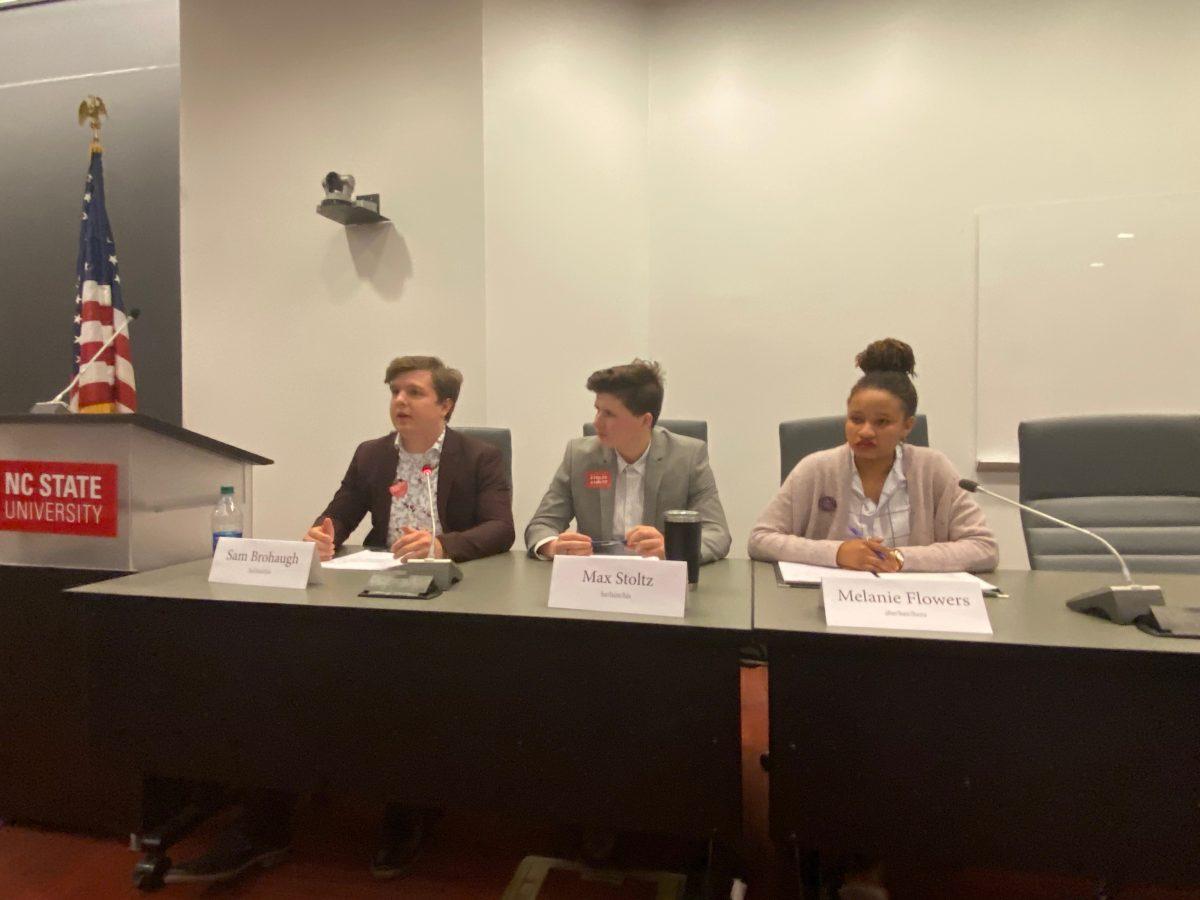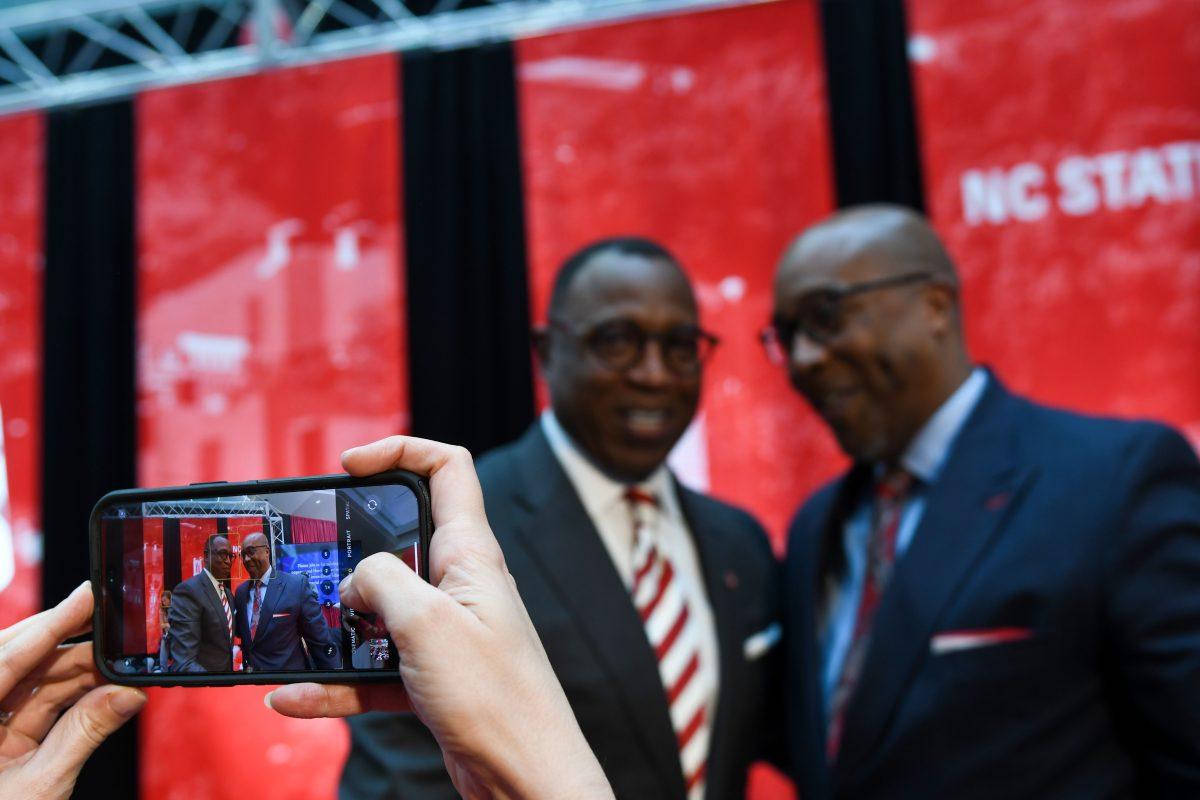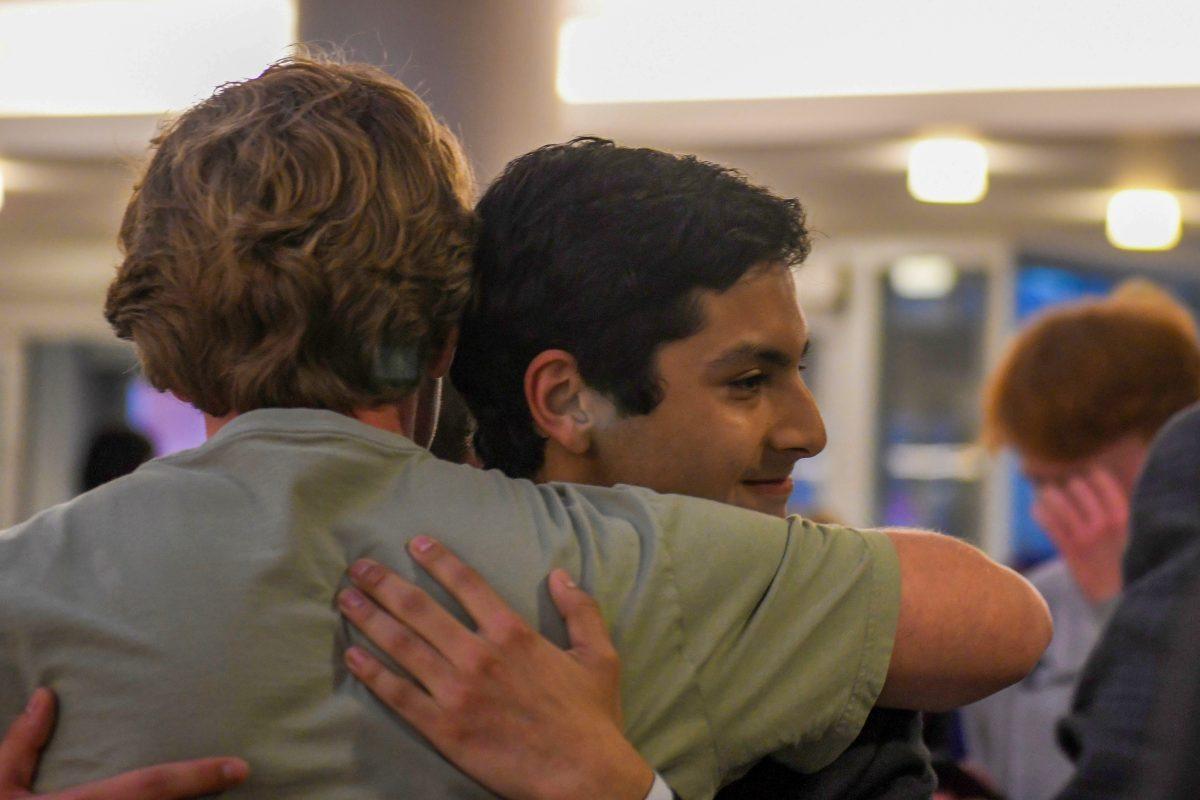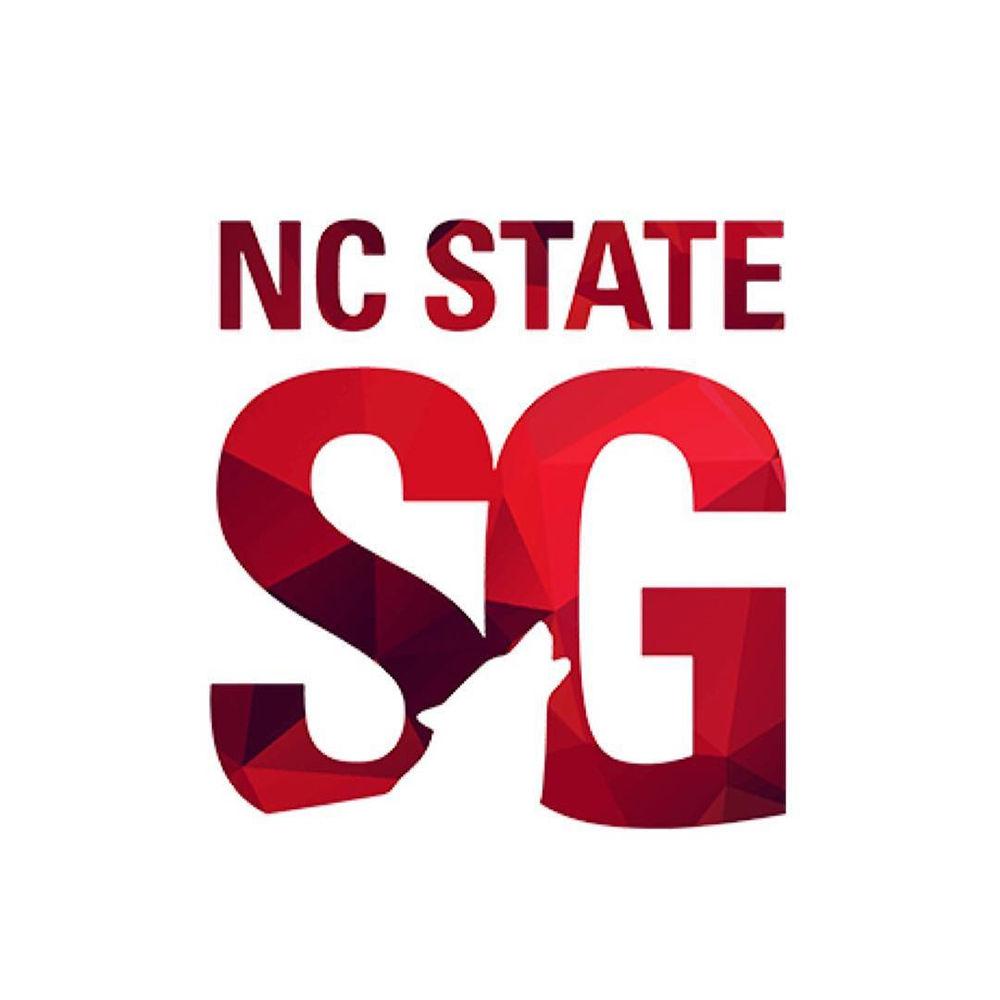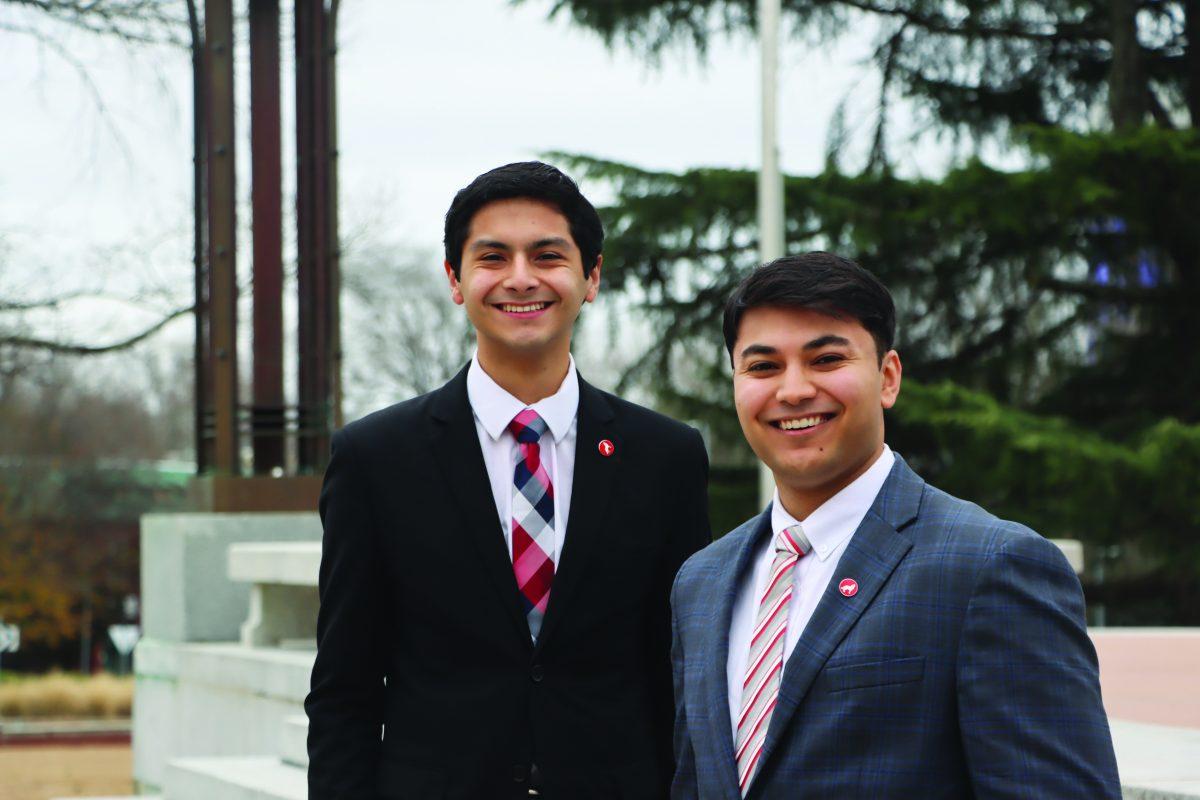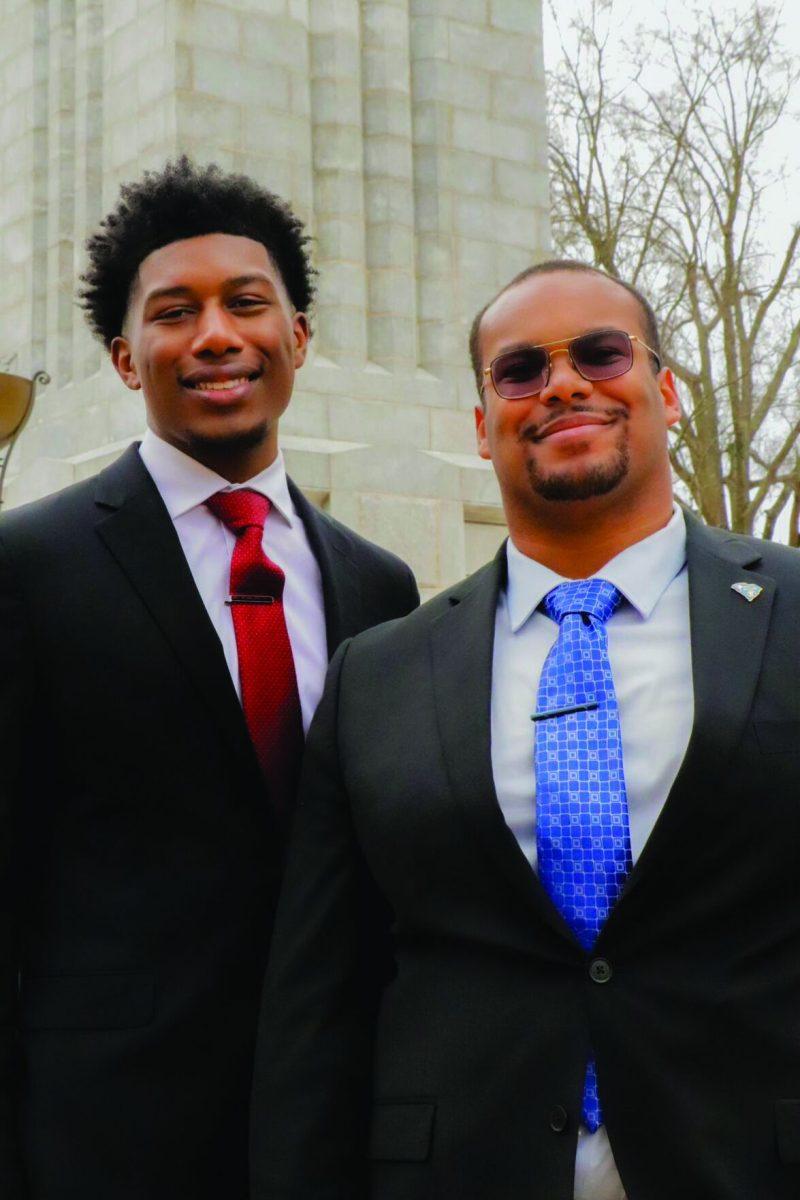On Friday, Feb. 28, Student Media hosted its annual student body president and vice president debates. Each year, Technician and Nubian Message pose questions to the presidential and vice presidential candidates in order to gain a better understanding of their platforms and promote them more widely to students. This year, three candidates participated in the presidential debate:
- College of Engineering Senator Sam Brohaugh, a third-year studying civil engineering;
- College of Natural Resources Senator Max Stoltz, a third-year studying parks, recreation and tourism management; and
- Inter-Residence Council Vice President of National Communication Coordination Melanie Flowers, a third-year studying communication.
One candidate did not attend the debate: Kappa Delta Vice President of Member Education Carlie Higgins, a third-year transfer student in political science and communication.
A complete video of the event can be watched on the Technician Facebook page.
Brohaugh began the opening comments, explaining his past experiences in leadership. “Here at State, I have sat two years on the Senate, where I have had the opportunity to sit both as an officer and the chair of my department, gaining an enormous respect for Student Government,” Brohaugh said. Among other issues, Brohaugh cited graduate student mental health as a main focus of his campaign.
Max Stoltz said he hopes to change the role of Student Government in students’ daily lives. “Hannah and I intend on being a channel of ideas, suggestions and grievances from all students,” Stoltz said. “We want this campus to be a true democracy where every student is seen and heard.”
Melanie Flowers, a transfer student from Western Carolina, said in her time at WCU, she worked with students to build safe environments and collaborated directly with administration to change campus life for all students. She cited her experience at NC State as a senator and Finance Committee chair. “My college experience has been filled with fiercely advocating for students with courage and boldness,” Flowers said.
All — Many graduate student workers at NC State do not get paid a living wage. Though the university covers tuition for those workers, many graduate students have expressed opposition to paying fees, which additionally eat into this income. As SBP, what actions would you take to address this?
Flowers opened with an initiative to regulate graduate student workers’ hours. “By regulating the amount of hours they can put in as grad students, TAs, researchers, they would have the opportunity to explore other options for financial stability,” she said. Brohaugh said his campaign plans to use its status as student body president and vice president to gain access to demographics which the university collects surrounding fee-funded services, in order to determine which are utilized and therefore should be paid for by graduate students. Stoltz agreed this was an issue that needed to be addressed, but outlined no specific course of action.
All — What do you think is the most pressing issue in terms of higher education now? How would you work with students, faculty and staff to address this?
Stoltz sees the cost of education as a major issue and said food insecurity was one outgrowth of this. “Students shouldn’t have to choose between having a meal or getting an education,” Stoltz said. Brohaugh, in line with his platform, said mental health is the biggest problem in higher education, citing graduate students specifically as experiencing depression and anxiety at six times the rate of the general population. Flowers also said food insecurity was a pressing concern and used graduate students as an example, explaining that complications in government policy can render them ineligible for SNAP benefits.
Stoltz — How do you hope to attract more rural and low-income students to the university?
Stoltz said he would begin by looking into the methods employed by colleges at NC State which are already successful at recruiting rural and low-income students, such as the College of Agriculture and Life Sciences. Brohaugh proposed a tactic inspired by the Program Enhancement Fee that engineering students must pay at NC State. “Part of that money goes to creating internships for students to go into the low-income and rural communities that they came from,” Brohaugh said.
Flowers — Your mental health initiatives look to expand services that are available to students to help meet their needs while in school. Do you think students are currently underserved? How do you intend to reconcile these needs financially with existing offices on campus such as the Counseling Center?
Flowers said to supplement the Counseling Center’s already outstanding work, she would implement an embedded mental health system at each college. Brohaugh questioned Flowers’ idea from the standpoint of financial feasibility. “Additionally, have you considered the implications of having one counselor for each college as disproportionate to larger colleges?” Brohaugh said. Flowers said her initiative is still in the early planning stages and agreed it would need work. Stoltz said his campaign would focus on spreading awareness for the personal wellness coaches offered by the Department of Wellness and Recreation. He said greater awareness of these and other services could help alleviate some of the burden on the Counseling Center.
Brohaugh — You plan to work with NCSU Facilities to have tampon dispensaries in new facilities, but you can’t use state funds for “personal products,” so Student Government money is off the table. How are you going to fund this?
Brohaugh opened with a two-step process addressing this issue. He said the first step is to analyze the policies surrounding personal-use items to see if they can be changed; barring that, he cited alternative sources of funding, such as alumni giving and on-campus organizations like We Bleed Red and Period at NC State. Flowers agreed. “I’d also want to expand the places in which these menstrual items are available,” she said. “Not everyone who’s a woman gets a period.” Stoltz also agreed with Brohaugh’s idea of “getting creative” with community support and Flowers’ comment about more inclusive bathrooms.
Brohaugh — In what ways do you plan to reevaluate Title IX? What existing problems do you hope to amend? What additional measures would you take to prevent sexual assault on campus?
Brohaugh said his campaign would work toward getting petitioners in sexual assault cases better access to legal counsel. He also recommended an online training system for sexual assault prevention, which would be similar to AlcoholEDU in that it would be required for all new students. Flowers disagreed with the latter initiative, saying AlcoholEDU training is ineffective because it does not engage students and can easily be skipped through. Stoltz recommended streamlining the reporting process for sexual assault cases.
Though Brohaugh suggested adding a sexual assault training module and Flowers disagreed with the proposal, NC State already requires an online Sexual Assault Prevention Education training for all new students.
All — If you had to pick one thing, what would your biggest priority be?
Brohaugh restated his case for financial need-based housing, which he said would include a priority application period for students who demonstrate financial need.
Stoltz said he would ensure students had the ability to change their Unity IDs. “It’s really important for people to recognize your identity, and for you to claim your identity and be proud of your identity,” Stoltz said.
Flowers said as the first black female student body president, she would prioritize faculty bias training through the Office of Institutional Equity and Diversity.


